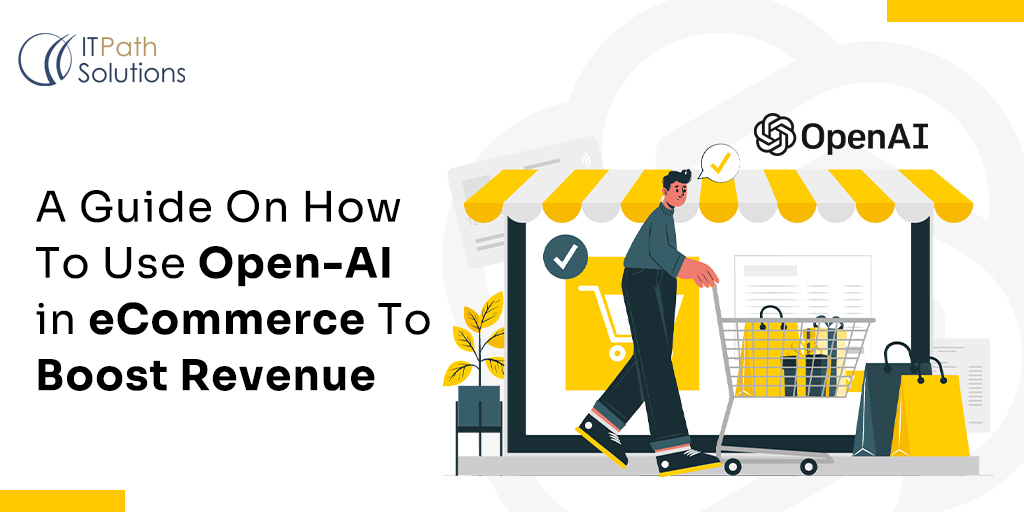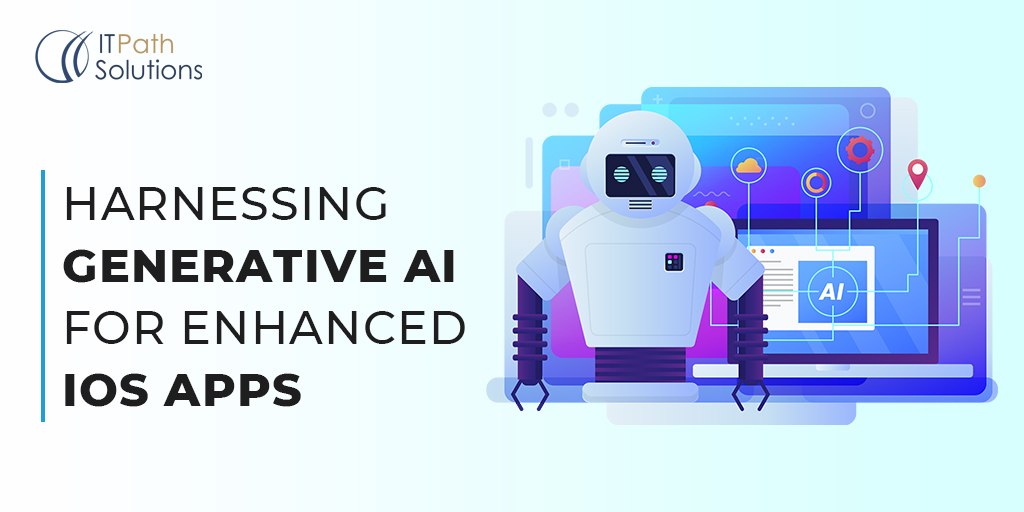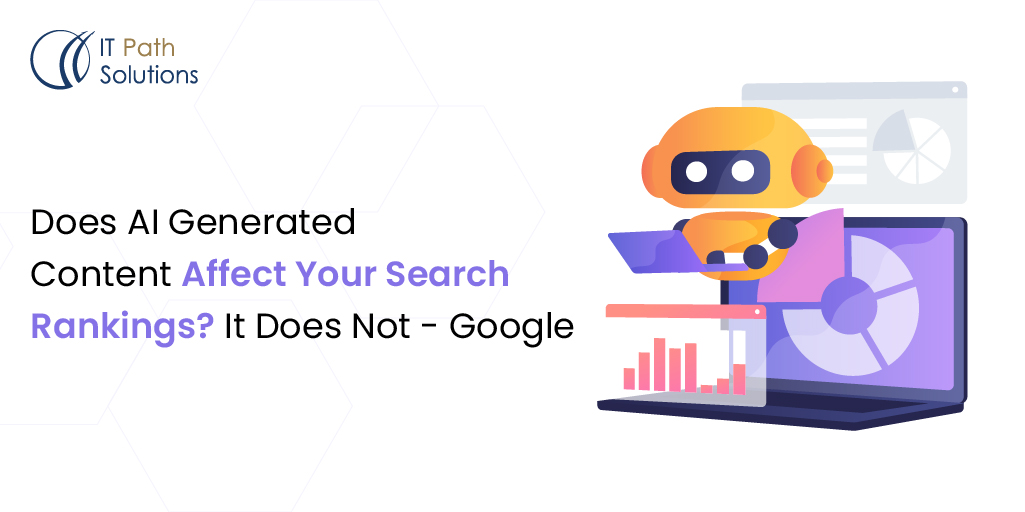A Guide On How To Use Open-AI in eCommerce To Boost Revenue
Generative AI
eCommerce websites using platforms such as WooCommerce, WordPress and others can benefit from this blog by utilizing the ever-evolving power of OpenAi and ChatGPT and other natural language processing models and machine learning models to enhance the functionalities of their eCommerce sites and offer better customer experience, generate more revenues and personalize and micro-target potential users accordingly. You can utilize the natural learning models to make your e-commerce website or app stand out from the crowd. Here’s how.
Best Practices to Use OpenAI to Improving Your E-commerce Site’s Responsiveness and Speed
You can take multiple steps to improve your site’s speed and responsiveness for your eCommerce website. These steps are platform-independent so you can use them for wooCommerce, Shopify or any other eCommerce platform.
Utilise GPT Models
You can utilise GPT models to enhance search functionalities, provide more customized content on the go and improve the overall search results and improvise a more custom customer experience.
Implement Search Bots
OpenAI and its language models and NLP functionalities can be used for search queries and natural language processing to provide more accurate and user-relevant results to the end user. You can provide an enhanced search function and make the user feel that he is finding the website useful and showcase him products that he finds useful and relevant quickly instead of letting the user search continuously.
Use Machine Learning
There are pre-trained and real-time training models available that can detect user behavior, find out patterns and provide useful actionable information that can be used to optimize product pages, website development and improve your business decisions. What you would ideally do is to always give users something. Dont let them have zero result search queries so that they are not leaving the website empty handed.
Best Practices to Use OpenAI to Write Product Recommendations
Open-AI algorithms have tremendous intelligence. Open-AI analyzes various types of customer data analysis, browsing history that give us trends and patterns. Leveraging artificial intelligence, eCommerce businesses can provide personalized and relevant recommendations based on customer behavior, product attribute, and contextual information. Here are some suggestions you can use.
Utilize Collaborative filtering
Collaborative filtering is a machine learning technique used to identify customer behavior and similarities between users’ data and items such as purchase history, and use this information to make personalized products recommendation. Personalized product suggestion helps to increase customer engagement, conversion, satisfaction, loyalty, and revenue.
Implement Content based filtering
Content based filtering is a machine learning technique that analyzes product features, user interest and attributes such as size, color, material to suggest similar products to customers. This method is easily scalable when customer behavior is not well-defined and products have similar features and attributes. It can offer niche results specific to the current user.
Hybrid Filtering
Hybrid filtering widely used in a variety of applications for recommending products or items to users that can provide more accurate and personalized products recommendation to customers.
Reinforcement learning
Using Reinforcement learning, eCommerce businesses can improve product recommendation over time. The system can learn and adapt customers behavior.
Utilizing the above machine learning technique in Open-AI, eCommerce businesses can enhance customers’ experience and drive sales by providing accurate and personalized product recommendations.
Best Practices to use OpenAI to Deal with Frustrated Customers
OpenAI assists eCommerce businesses to reduce response time and improve efficiency. Implementing machine learning algorithms in e-Commerce business, you can analyze customer feedback and behavior and provide personalized support and identify potential issues. Here are some suggestions you can use.
Developing custom OpenAI Chatbot:
Open-AI Chatbot helps eCommerce businesses to enhance customer behavior and streamline processes. eCommerce businesses can handle a wide range of tasks such as customer inquiries, real-time support, answering frequently asked questions and resolving customer issues through Open-AI Chatbot.
Focus on Customer sentiment analysis
With use of Open-AI customer sentiment analysis, eCommerce businesses can identify areas of improvement and make informed decisions to enhance their products, services, or customer experiences.
Use Voice Assistants
Open-AI Power voice assistants use voice recognition and natural language processing to provide free hand customers support, perform tasks and interact with users through voice commands. This can include tasks such as placing orders, checking order status, and access account information.
Personalized product suggestions
With the use of Open-AI product recommendation, eCommerce stores can clearly identify customer preference and behavior and provide a more tailored and engaging customer experience.
By implementing above Open-AI powered features, eCommerce stores can save time, drive sales, and improve efficiency to customers’ services.
Best Practices to Use Open-AI to Write Compelling Product Descriptions
Open-AI is widely used to improve the complexity of writing compelling product descriptions by leveraging natural language processing and machine learning algorithms to generate high quality product descriptions. Here are some suggestions you can use.
Use Text Summarization
Implementing Open-AI API for text summarization can decrease lengthy product description into shorter and more cosine. Customers can get a quick and clear understanding of the key features and benefits of products using Open-AI text Summarization.
Implement Language Translation
Implementing Open-AI API for language translation, can translate product description into multiple languages. As well, eCommerce businesses can reach and target a global audience and expand their customer base.
Product Attribute extraction
Open-AI powered product attribute extraction method improves accuracy and completeness of the products. eCommerce business can automatically extract import information from product description such as brand, color, size, and material.
By implementing above Open-AI powered techniques, eCommerce businesses can write graceful product descriptions, save time and optimize operations.
Provide Relevant Product Search Result To Users Using OpenAI
With OpenAI you can make sure that the user always gets relevant search results as per their queries and doesn’t receive a zero search result query in return. Here are some suggestions you can use.
Predict Queries and Autocorrect
When customers may enter a misspelt query or a term that is not relevant to their overall intent you can provide suggestions and lead them to the right product results to make sure that their queries are satisfied.
Focus on Meaning and Intent
With natural language processing models, you can focus on the user’s intent and meaning behind the query even when the query might be a bit vague. For example, your user may search for fashion tips when he might just be looking for trendy styles and latest garments available on your website. With natural learning and ML trained algorithms, you can direct such users to the right search results.
Expand Search
Depending on the user;s query you can provide expanded results with products that are an exact match or a broad match depending on the model used by the AI and ML trained algorithm and depending on the user behaviour you have observed.
Category Mapping
Find out the category of the product and suggest alternatives if the exact product is not available. For example, if the user is searching for a blue shirt but you don’t have it, then you can suggest a blue Tshirt or alternative shirt colours that are a good substitute for blue colour shirts.
User History Based Recommendations
Based on the user’s history and purchase behaviour, the machine can suggest products that are likely to be favoured by the customer and suggest those products.
NLP and Historical Data Processing
Using natural language models, you can use the search queries entered by users compare them with historical data on searches and derive the right searches based on user intent, search history and use the natural search queries to turn it into something more relevant for example, a query like “nice shirt” could mean “red shirt” or “blue Shirt”.
Conclusion
Implementing Open AI in e-Commerce business improves customers shopping experience, drives sales, increases customer satisfaction and loyalty. Hire our expert AI developers who can integrate OpenAI’s API into your eCommerce store. Contact us to develop AI-based solutions using Open AI.
 Healthcare
Healthcare  Education
Education  Real Estate
Real Estate  Logistic
Logistic  Fitness
Fitness  Tourism
Tourism  Travel
Travel  Banking
Banking  Media
Media  E-commerce
E-commerce 




